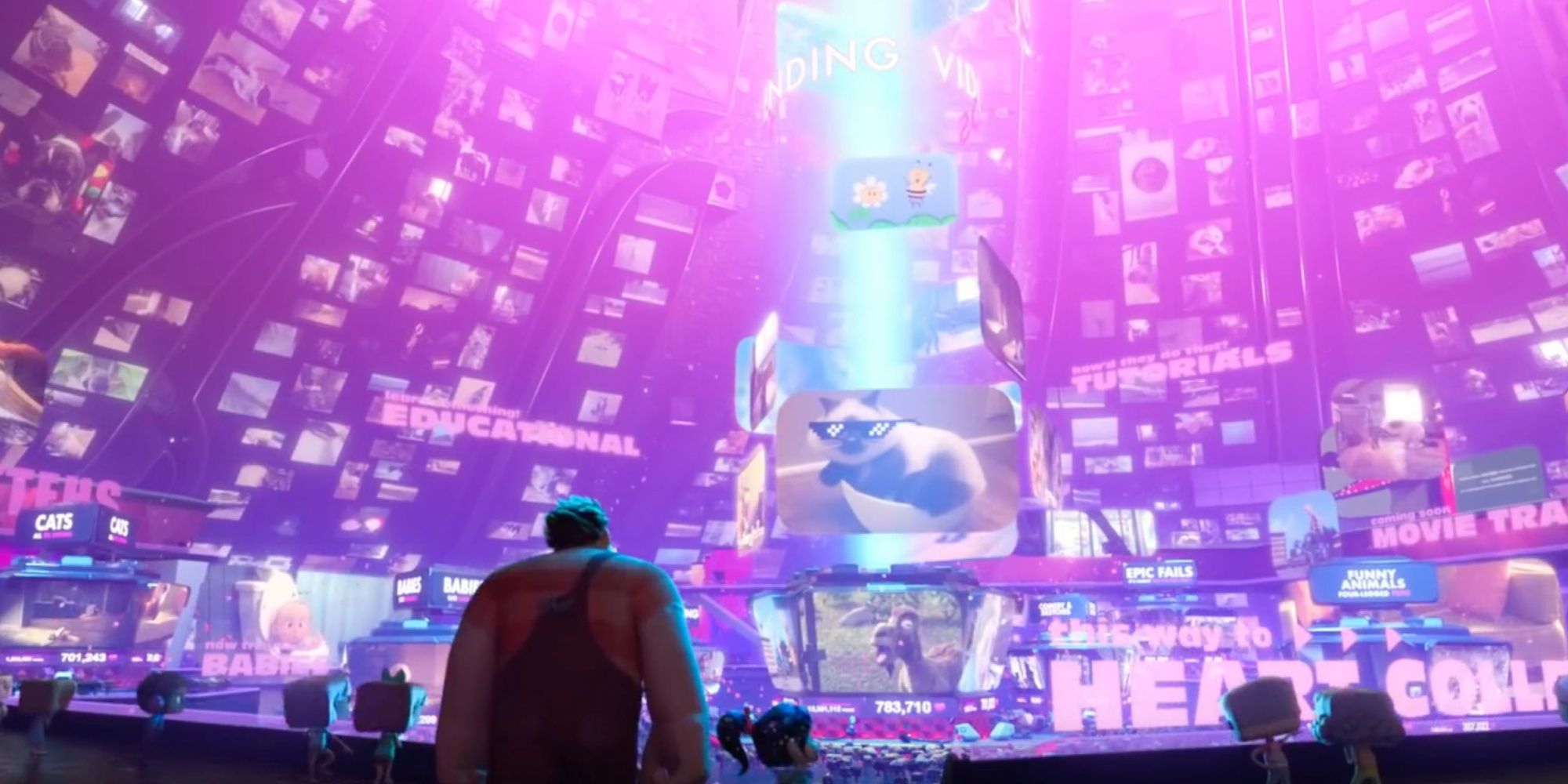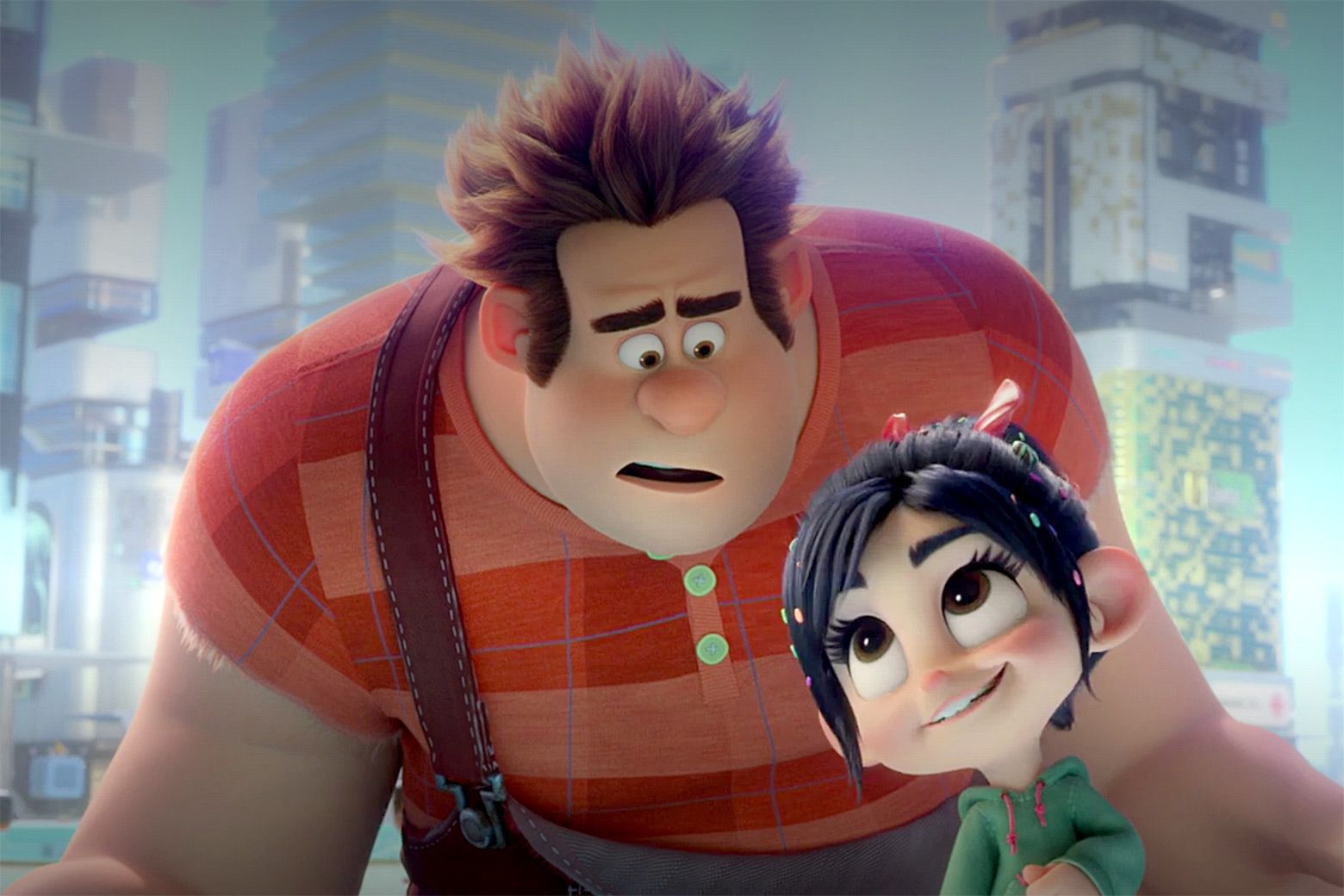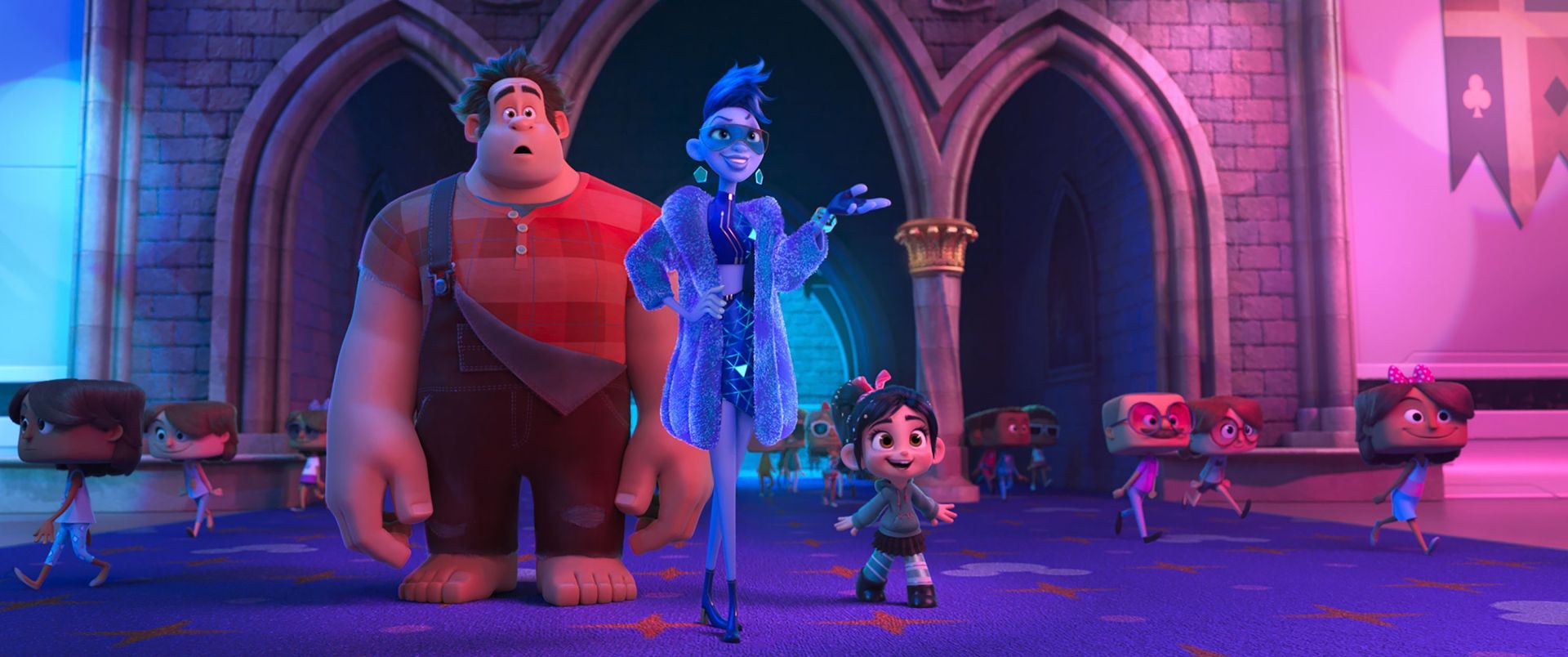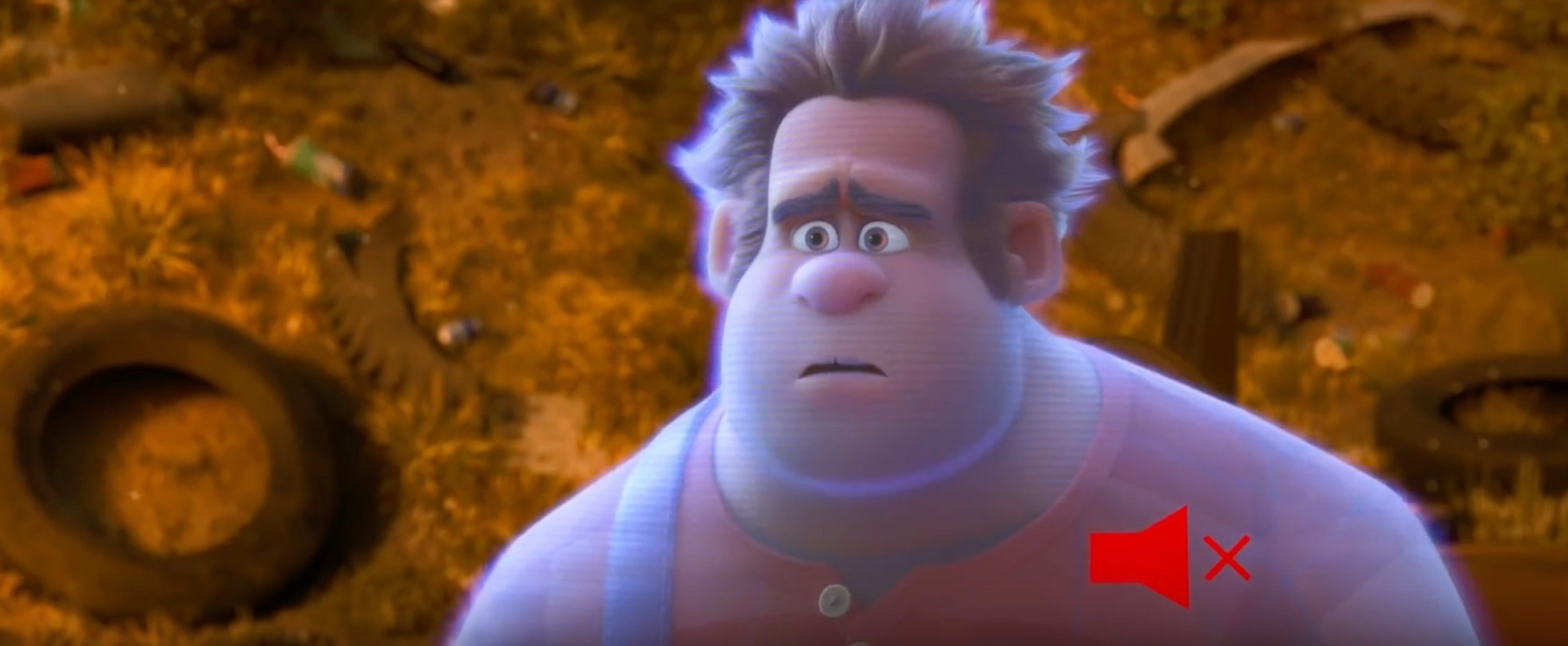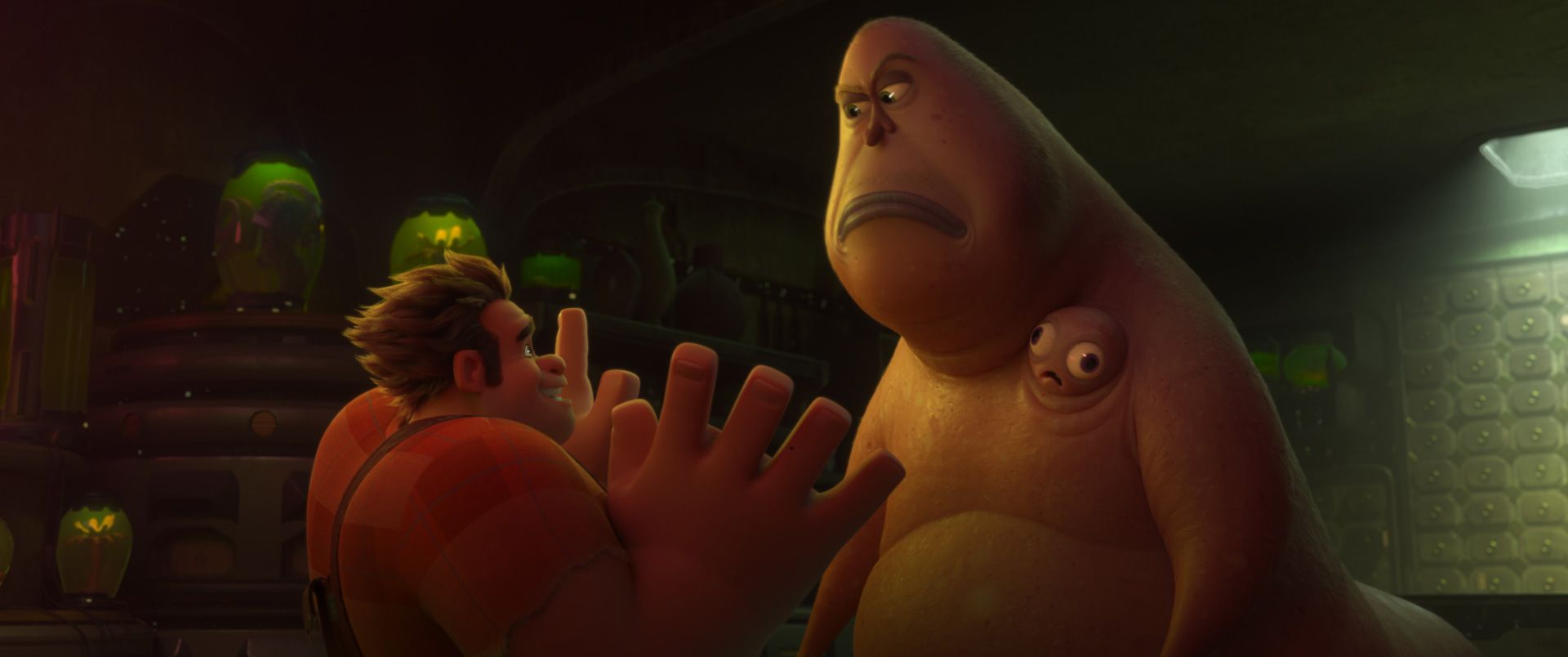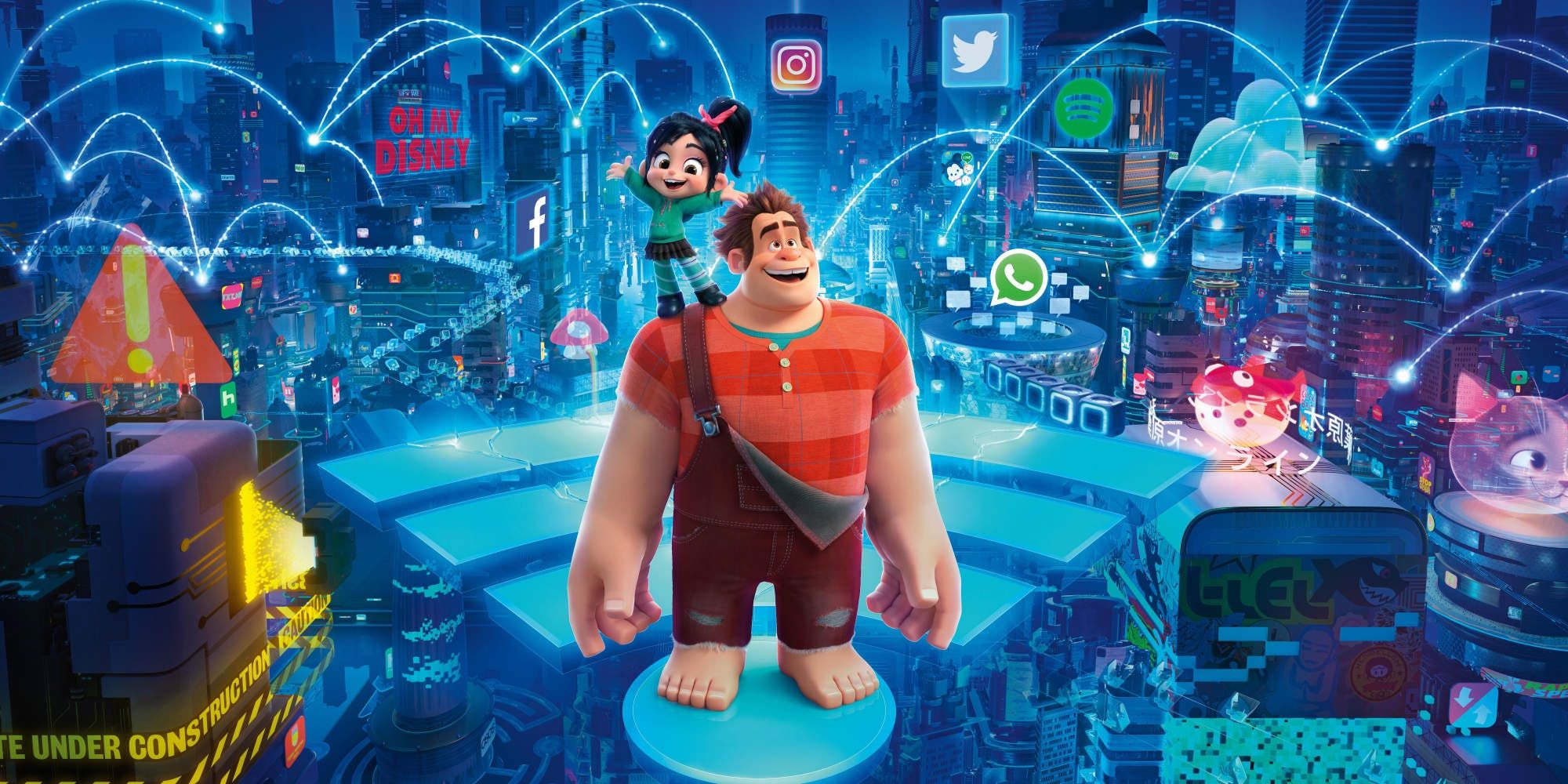WARNING: The following article contains spoilers for Ralph Breaks the Internet, in theaters now.
Ralph Breaks the Internet embraces the online world and explores what it means for people who increasingly live more and more of their lives online. That doesn’t just include the algorithms or the Dark Web peddlers, but also the people who try to adapt the internet to help their own lives, too.
Much like the audience, the heroes of the film are trying to use the internet as a tool, and find that it can have positive and negative effects. Ralph Breaks the Internet proves that being online brings out the worst and the best of us all, and it comes down to how we use the internet to truly define its merits.
RELATED: What Ralph Breaks the Internet's Ending Means For the Franchise
Yesss, Queen
Yesss (played by Taraji P. Henson) is one of the more compelling characters in the film. She’s opportunistic and quick to dismiss someone she sees no real value in. But when she finds out that Ralph (John C. Reily) and Vanellope (Sarah Silverman) might have some potential to pick up some easy views, she warms to them almost immediately.
Her initial dismissal of the pair stings, and could even give the impression that she’ll turn on them as soon as they stop being of use to her. But Yesss proves to be a valueable ally and helps them earn enough money to afford the steering wheel piece needed to fix Sugar Rush. She’s even vital to the climax of the film, risking her own life to help Vanellope and Ralph.
RELATED: Does Ralph Breaks the Internet Have a Post-Credits Scene?
She also proves keenly aware of the kind of damage the internet can do. It’s why she doesn’t like the idea of Ralph looking too deeply into the comments section of the videos starring him. People use the secrecy of being online to vent and complain and insult without any other prompting beyond “the comment section is open.”
It’s a painful moment for Ralph and the audience, something many of us in the online age have probably felt at some point. There’s no rhyme or reason to it; some people just don’t like something and choose to yell about it, regardless of the feelings of the person on the other side of the screen. In a world defined so much by social media and the comments we leave, that unwitting anger is so much more destructive than we expect.
NEXT PAGE: You Can Get Anything on the Dark Web (Except Common Sense)
The Dark Web
Like Yesss, Double Dan (Alfred Molina) turns out to not be as malicious as he initially appears. When Ralph goes to him in the Dark Web, he’s looking for a virus to ruin Slaughter Race. Double Dan offers him the necessary virus free of charge, and even warns him of the potential danger the virus could wreak if it gets loose in the rest of the internet. He faces no comeuppance in the film, just providing Ralph the means to his own self-destruction.
Double Dan doesn’t try to use the virus to spread his influence or cause specific damage to anyone. He gives Ralph the choice whether or not he wants to unleash the virus, and leaves it to him to do with as he will. All the damage the virus brings to the world is on Ralph, not Double Dan. The pain and suffering online is caused by our choices, not the internet itself. While the internet might provide the tools, we're the ones who bend it to its worst potential.
RELATED: Ralph Breaks the Internet Turns the Disney Princesses Into the Avengers
The Good (And Bad) Of The Internet
When Ralph finds the comments section for the videos he’s created, it plays on his longstanding insecurities and fears. It brings him to tears, even though he tries to play it off as not something that really affects him. But even with the pain he’s clearly going through, Yesss reminds Ralph of all the good the internet can do. It gave him a way to save Sugar Rush, and it even presents a place for Vanellope to find what she loves and grow as a racer.
The online world isn’t magical or controlled by some unseen force. It’s just an extension of the greater world around us. That means that the accomplishments and friendships made over the internet come from the people using the internet, not just the internet itself. But that also means the darkness present online didn’t spring to life because it’s just online -- it’s because people had the opportunity to do whatever they wanted online, and they ultimately chose poorly.
Ralph Breaks the Internet makes the case that it's all of us who make the online world such a confusing and complicated place, and that it's on us to make it better.
Directed by Rich Moore and Phil Johnson, Ralph Breaks the Internet is in theaters now. The film features the voices of John C. Reilly, Sarah Silverman, Taraji P. Henson, Gal Gadot, Jane Lynch, Ed O’Neill and almost every Disney Princess voice recorded.

